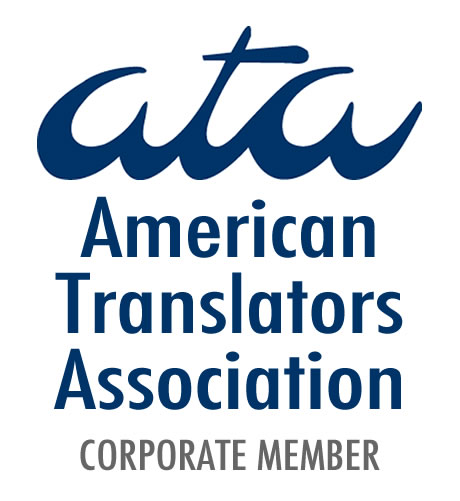
Freelance Translator Red Flags: How to Protect Your Career
As a freelance translator, you have the freedom to choose your own projects, set your rates, and decide which clients to work with. However, along with this freedom comes the challenge of navigating a world full of potential pitfalls. Freelance translation work can be rewarding, but it’s also important to be aware of the “red flags” that could indicate a bad or even fraudulent job offer. In the digital age, where more people are entering the freelance market, the risk of encountering sketchy job offers is higher than ever.
As a translator, you likely encounter many offers for work each week. Some are genuine, while others may raise doubts. Unfortunately, some of these opportunities might turn out to be scams or unprofessional requests that could harm your career. To help you navigate these waters, we’ve put together a list of the most common freelance translator red flags and tips for how to protect your career from potential harm.
1. Unclear or Vague Payment Terms
One of the most common freelance translator red flags is when a potential client is vague or unclear about payment terms. As a freelance professional, it’s crucial that payment terms are clearly outlined before you begin working on any project. This includes the agreed-upon rate, payment schedule, and preferred payment method.
If a client can’t provide these details or offers a vague promise of “payment after project completion” without any formal agreement, that’s a red flag. A reputable client will be transparent and clear about payment expectations. If they’re unwilling to provide this, you should proceed with caution.
In some cases, you may encounter a situation where the client tries to delay payment or promises payment only once they’ve received their funds from another party. This is often a tactic used by sketchy job offers to avoid paying you on time or at all. Be sure to get the payment terms in writing, including the timeline and method, to protect yourself.
2. Requests for Free Work
Another significant red flag in the freelance translation world is when a potential client requests free work. While it’s common for some clients to ask for sample translations to gauge your skills, be wary of those who ask you to do actual work for free, especially if they claim it’s for a “test project” or “trial run.”
The goal of a reputable client is to find someone they can build a working relationship with, and that includes compensating you fairly for your time. If a client asks for free work upfront, it’s often a sign that they don’t value your expertise, and they may never actually pay you. While offering free samples is normal in some cases, you should always ensure that it’s reasonable and that the client has a genuine interest in hiring you long-term.
It’s essential to know your worth as a freelancer and not fall for these kinds of requests. If you’re asked to do a significant portion of the work for free, politely decline and move on.
3. Unrealistic Deadlines and Excessive Workload
As a freelance translator, you might sometimes find yourself working under tight deadlines. However, you should always be cautious when a potential client demands an unrealistic turnaround time or excessive workload, particularly without offering fair compensation.
Clients who set deadlines that are too tight for the scope of the project often do so to take advantage of your willingness to please. They might expect you to work long hours to meet unreasonable demands without considering the time and effort involved. This type of client may also push you to work beyond your capacity, causing unnecessary stress and burnout.
Be sure to evaluate every project carefully before agreeing to the terms. If a deadline seems too rushed, ask for a realistic extension or reassess the project’s scope. As a professional translator, your time and well-being are valuable, and it’s important to avoid overcommitting yourself.
4. Lack of Professional Communication
Clear and timely communication is essential in any professional relationship. If a client is unresponsive to emails or doesn’t provide adequate information about the project, this could be a sign that they’re not serious or may not have a professional approach.
Communication breakdowns can lead to misunderstandings, mistakes, and missed deadlines. A professional client should be prompt, clear, and courteous in all communications. If you consistently experience delays in responses or vague answers, consider whether this client is worth your time.
Additionally, if a client is consistently unprofessional in their tone or manner, it’s a major red flag. Professional clients will treat you with respect and maintain clear and effective communication throughout the project.
5. The “Too Good to Be True” Job Offer
We’ve all heard the saying, “If something seems too good to be true, it probably is,” and this applies to freelance translation offers as well. One of the biggest red flags in the industry is the “too good to be true” job offer. These types of offers promise extraordinarily high pay for minimal work, enticing you to jump in quickly.
While it’s not impossible to find high-paying translation work, an offer that seems excessively lucrative without reasonable justification is often a scam. These scams can come in many forms, but the underlying goal is usually to trick you into doing the work without any intention of paying or, in some cases, to steal your personal information.
If you come across a job offer that promises high pay for a simple task, take a moment to do your research. Look up reviews or testimonials about the client, and ask for references. If the offer sounds too good to be true, it probably is.
6. Pressure to Work Without a Contract
Having a formal contract in place is vital for both your protection and the protection of the client. A contract outlines the terms of the job, including the payment amount, deadline, deliverables, and other crucial details. It serves as a safeguard against potential issues that may arise during the course of the project.
A major red flag to watch for is a client who insists on starting work without a signed contract. Working without a contract means there’s no clear legal agreement, which could lead to disagreements over payment, deadlines, or other project details.
If a client refuses to provide a contract or tries to pressure you into starting work before the details are confirmed in writing, it’s time to reconsider the offer. Always make sure to have a contract in place before you begin any project, and never rely solely on verbal agreements.
7. Unclear or Constantly Changing Project Scope
Clients who can’t clearly define the project scope or who constantly change their requirements are not ideal to work with. This can lead to frustration, confusion, and a lot of wasted time. A legitimate project will have well-defined parameters, including the type of translation required, the format of the deliverables, and the expected completion time.
However, if a client keeps changing their mind, adding new tasks, or moving the goalposts, this can become a significant problem. Constant changes may indicate a lack of organization or a lack of respect for your time. It’s essential to address any changes with the client and clarify how these changes impact your work and compensation.
If you find yourself in a situation where the project scope keeps evolving, it’s important to set boundaries and discuss how the changes affect your rates and deadlines.
How to Protect Your Career
As a freelance translator, the best way to protect yourself from these red flags is by being proactive. Research potential clients before agreeing to work with them. Look for reviews, testimonials, or feedback from other translators to get a sense of their reputation.
Also, don’t hesitate to ask questions. If something feels off about a job offer, ask for more details, and take the time to evaluate the legitimacy of the opportunity. Trust your instincts—if you have a gut feeling that a client or job offer is sketchy, it’s often worth walking away.
Set clear boundaries with your clients from the outset. This includes agreeing on payment terms, project scope, deadlines, and the method of communication. A well-structured contract that both you and the client sign is essential for ensuring that expectations are aligned.
Finally, never be afraid to say no. Not every job is worth your time, and it’s better to pass on a suspicious opportunity than to risk working with a dishonest client. Building a successful freelance career takes time, and working with reputable clients will ultimately lead to better opportunities down the road.
Freelance translators face many challenges, but with the right tools and knowledge, you can avoid the most common pitfalls. By staying vigilant and recognizing freelance translator red flags early on, you can protect your career and build long-term, rewarding relationships with clients. Sketchy job offers are unfortunately a reality in the freelance world, but by setting clear boundaries and staying informed, you can safeguard your time, your finances, and your reputation. Keep your standards high, trust your instincts, and always prioritize professionalism in your freelance translation business.











